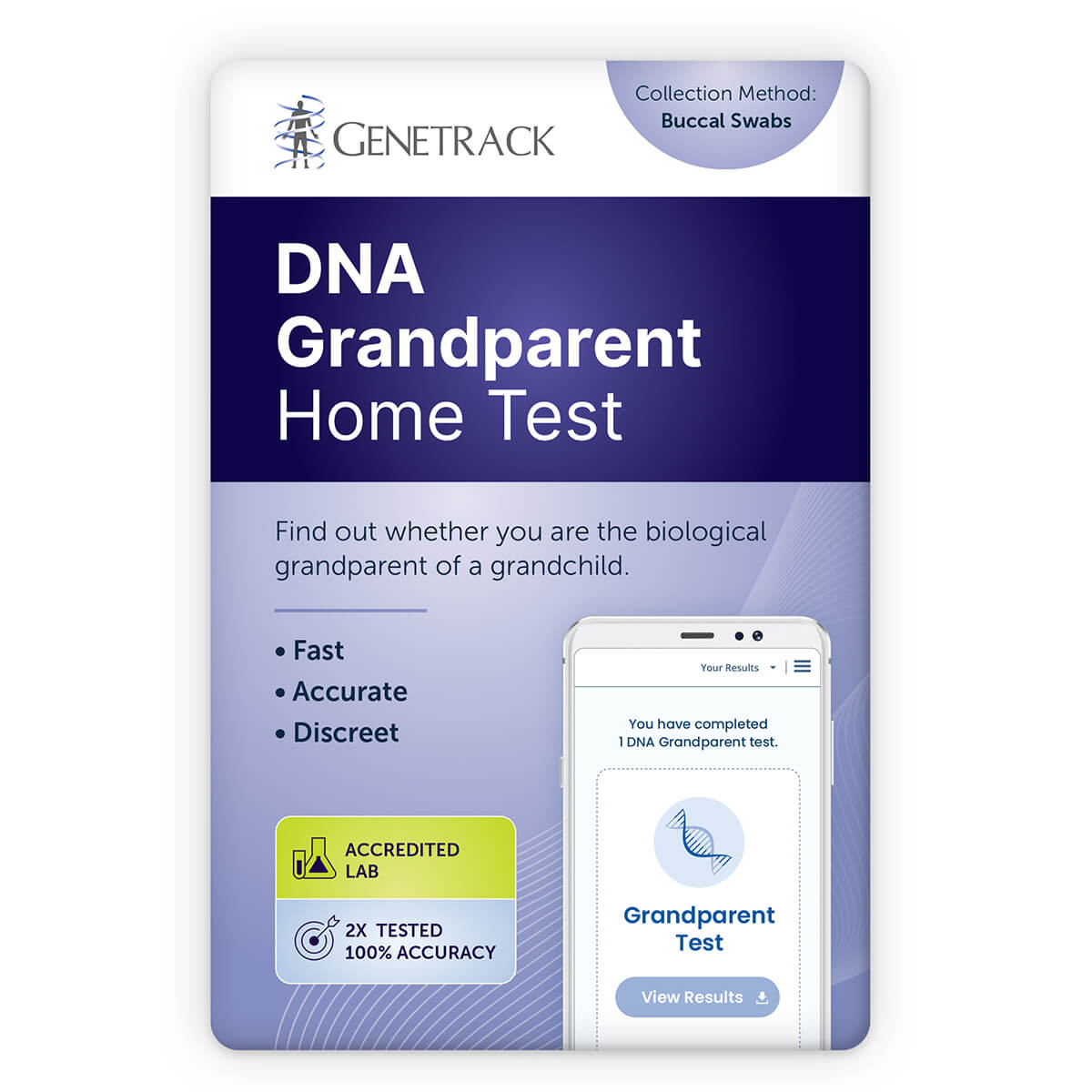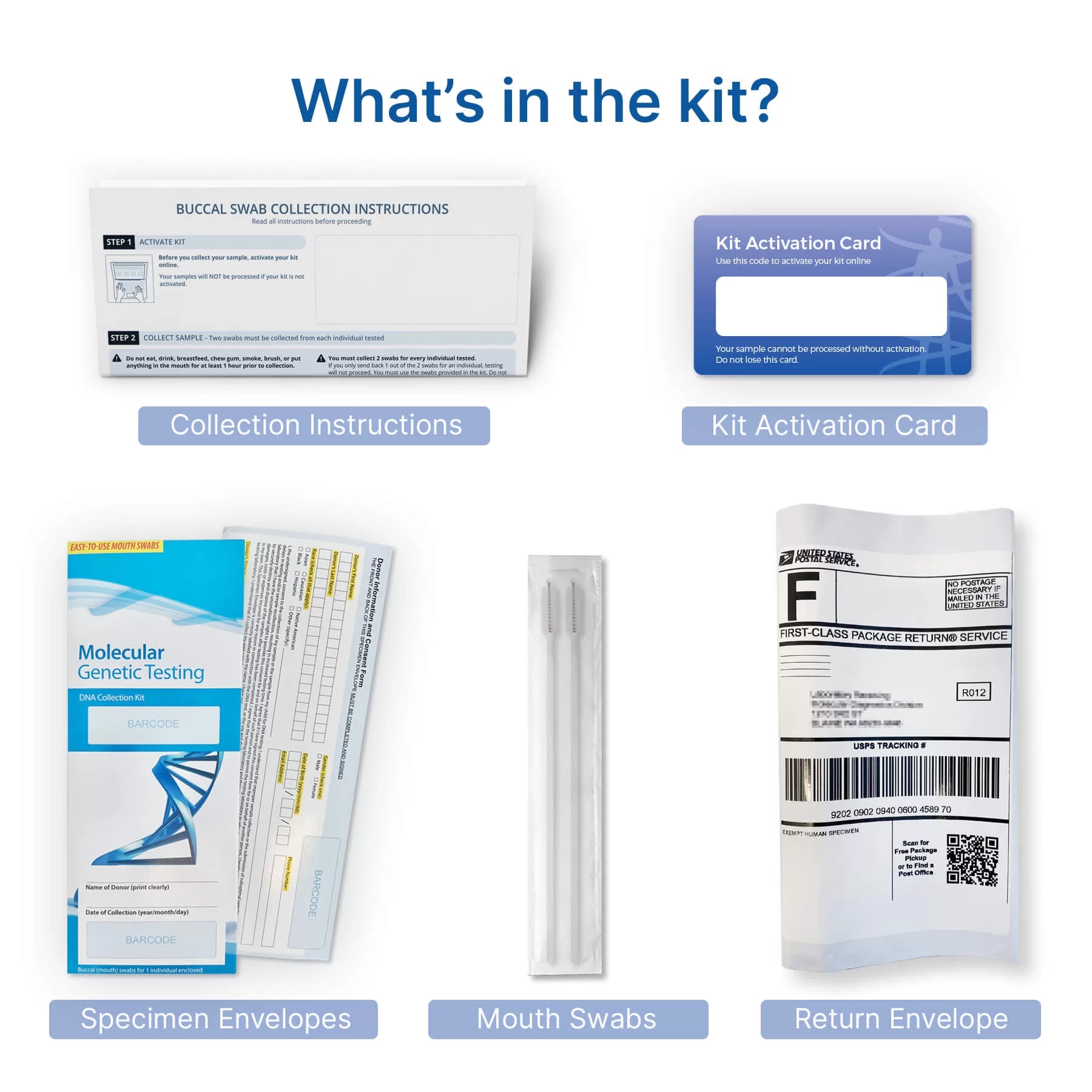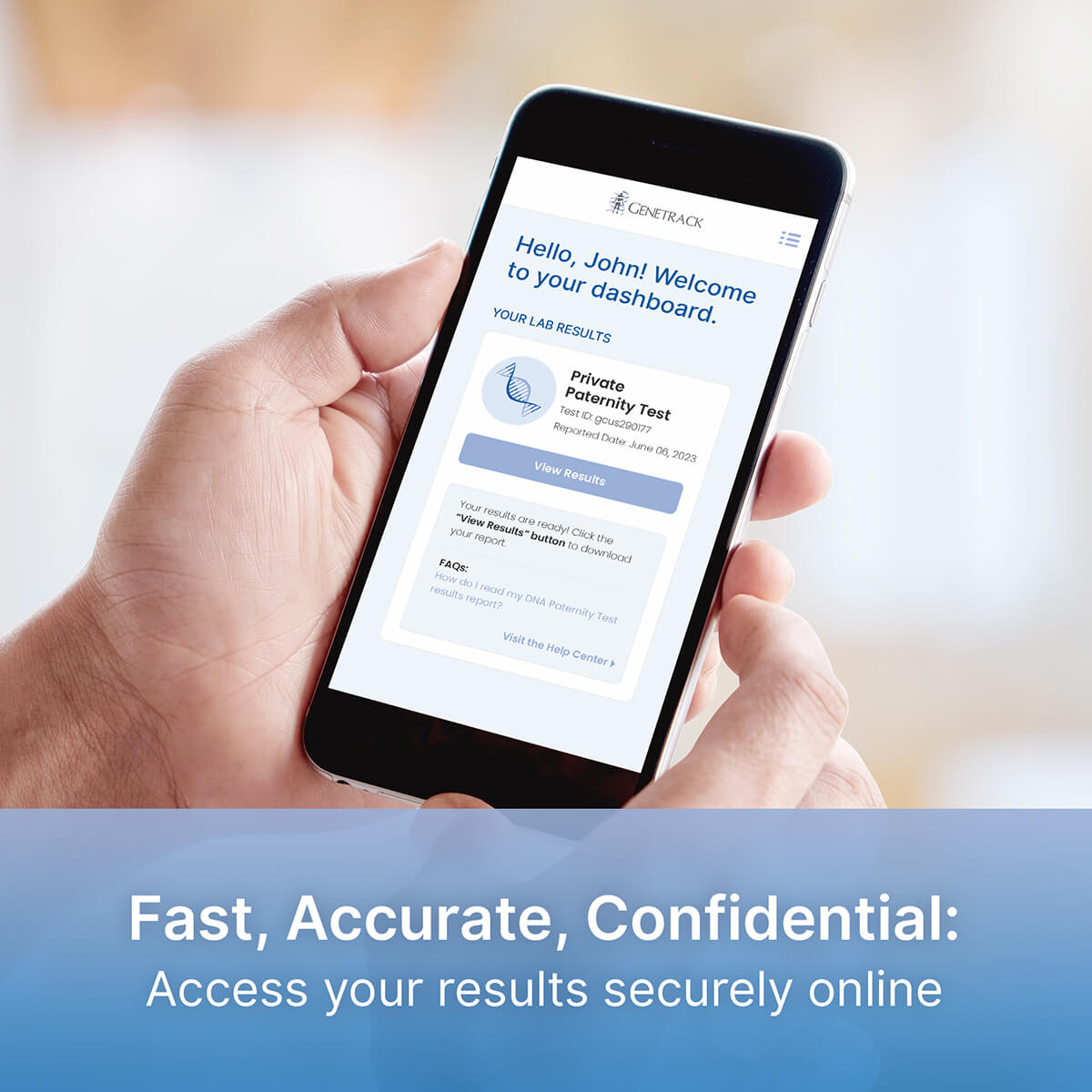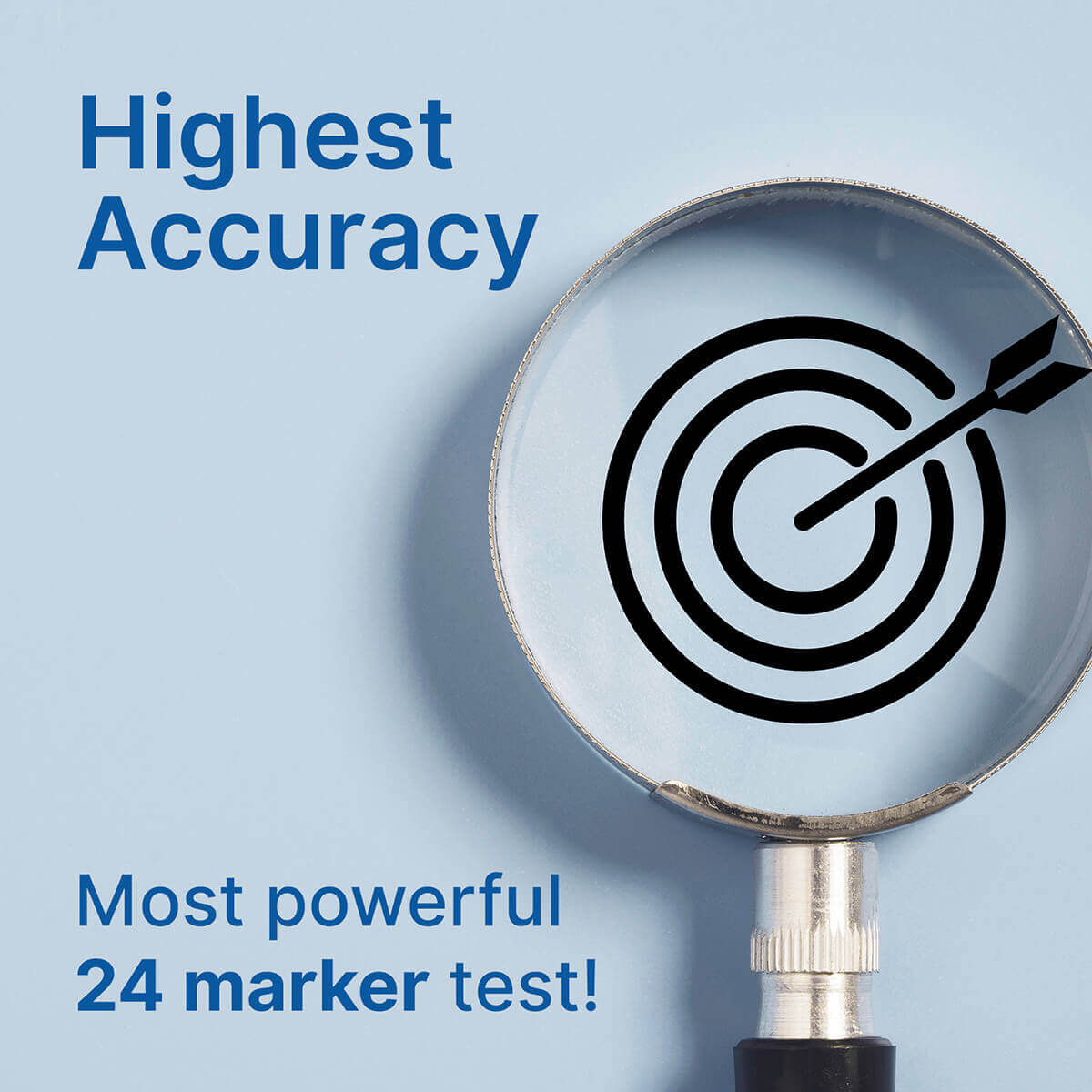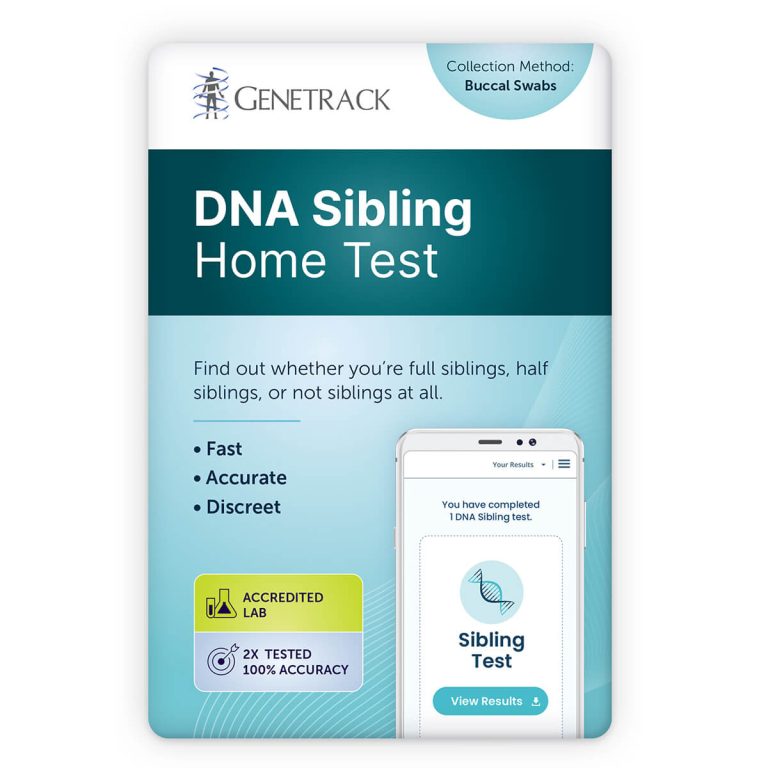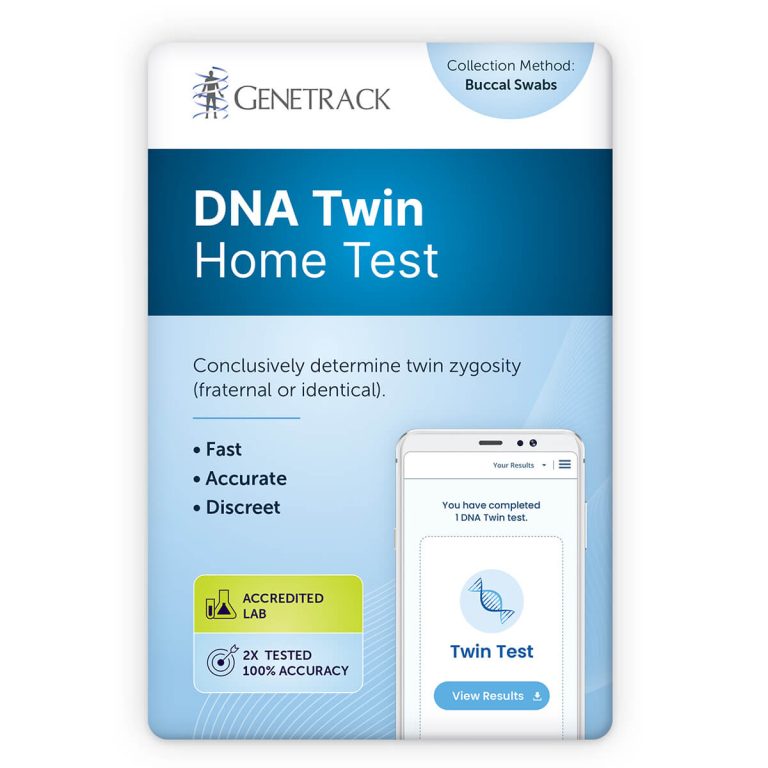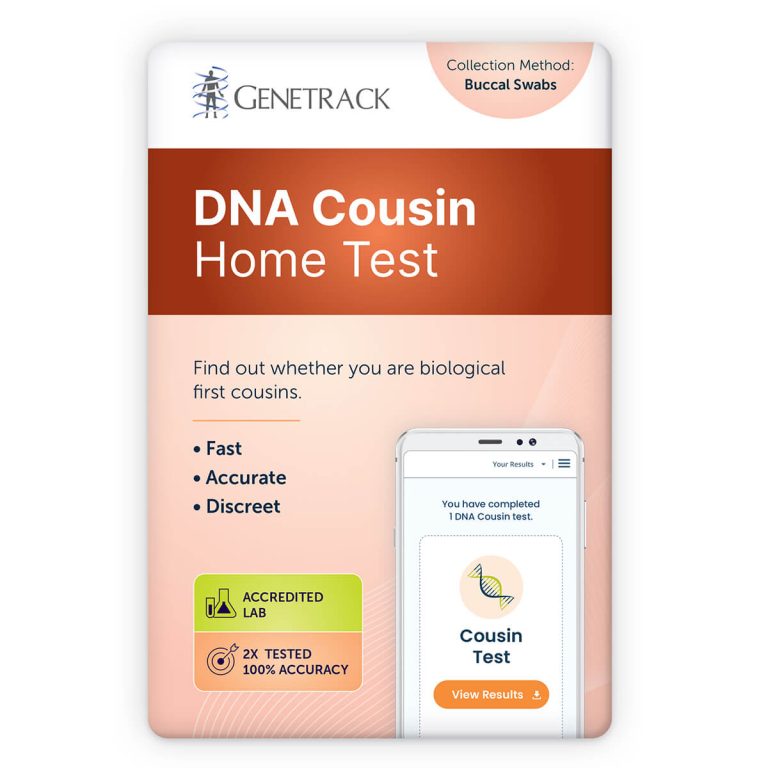Home DNA Grandparent Test
$149.00
The DNA Grandparent Test is used to investigate the likelihood of a grandparent-grandchild biological relationship. This test is best used when the alleged father is unavailable for testing. Either or both grandparents can take this test to determine if they are the biological grandparents of a grandchild. DNA testing is ageless and can be performed on infants as well as adult grandchildren. A complete genetic report is included with every test.
- Results delivered in 1-2 business days
- Each DNA test is conducted twice for 100% accuracy
- AABB, ISO/IEC 17025 & CAP-CLIA accredited laboratory
This test is intended for peace-of-mind and personal use only.
Need DNA results for legal proceedings?
This test is intended for peace-of-mind and personal use only.
Need DNA results for legal proceedings?
Legal Grandparent Test
Legal DNA testing (also known as chain-of-custody testing) provides court-admissible DNA results for child support, custody, immigration, birth certificate, Social Security, or other legal reasons.
Our Legal Grandparent Test follows a strict chain of custody collection protocol and provides court-admissible results recognized throughout the US.
DNA Immigration Test
Immigration DNA testing is used to provide DNA evidence of a biological relationship between a petitioner and a beneficiary for immigration purposes.
If you’ve been asked to provide DNA evidence for your USCIS or US Embassy application, you will need the immigration DNA test.
AABB, CAP & ISO/IEC 17025 Accredited
About the Test
The DNA Grandparent Test is used in situations where the alleged father is not available for testing. Either the grandmother, or the grandfather, or both can take the DNA grandparentage test to investigate the likelihood that they are the true biological grandparents of a grandchild. There is no age limit for DNA testing so the test can be performed on infants as well as adult grandchildren. The full genetic report is included with every test.
Technical Information
To perform a grandparent DNA test, we collect a DNA sample from both the grandparent and grandchild using simple mouth swabs. This provides cells that contain each person’s unique genetic code.
In the lab, we extract and analyze the DNA, comparing specific regions from the grandparent to the grandchild. We look for biological markers that are typically passed down to grandchildren from grandparents.
Our experts then statistically analyze the DNA matches. Related grandparents and grandchildren will have a high match score, called the grandparentage index, over 1.0. Unrelated pairs will have a low score under 1.0.
The higher the grandparentage index over 1.0, the more likely the grandparent/grandchild relationship is biologically true. Conversely, the lower the grandparentage index below 1.0, the less likely the grandparent/grandchild relationship is biologically true.
Benefits
Convenience
Fast Turnaround
Certified Laboratory
Court-Admissible Results
Confidentiality
About the Test
The DNA Grandparent Test is used in situations where the alleged father is not available for testing. Either the grandmother, or the grandfather, or both can take the DNA grandparentage test to investigate the likelihood that they are the true biological grandparents of a grandchild. There is no age limit for DNA testing so the test can be performed on infants as well as adult grandchildren. The full genetic report is included with every test.
Technical Information
To perform a grandparent DNA test, we collect a DNA sample from both the grandparent and grandchild using simple mouth swabs. This provides cells that contain each person’s unique genetic code.
In the lab, we extract and analyze the DNA, comparing specific regions from the grandparent to the grandchild. We look for biological markers that are typically passed down to grandchildren from grandparents.
Our experts then statistically analyze the DNA matches. Related grandparents and grandchildren will have a high match score, called the grandparentage index, over 1.0. Unrelated pairs will have a low score under 1.0.
The higher the grandparentage index over 1.0, the more likely the grandparent/grandchild relationship is biologically true. Conversely, the lower the grandparentage index below 1.0, the less likely the grandparent/grandchild relationship is biologically true.
The Genetrack Difference
Fast Turnaround
2x Testing Guarantee
Court-Admissible Results
Confidentiality
How Home DNA Testing Works

Order Test Kit
From paternity tests to grandparent tests, we offer a wide range of DNA tests to fit your needs.

Collect & Ship
Easily swab the participants with our painless mouth swabs, then send the samples to our laboratory for analysis.

Receive Results
Access your confidential results online within 1-2 business days. Our team of experts is available for any questions.
Secure & Confidential Online Results
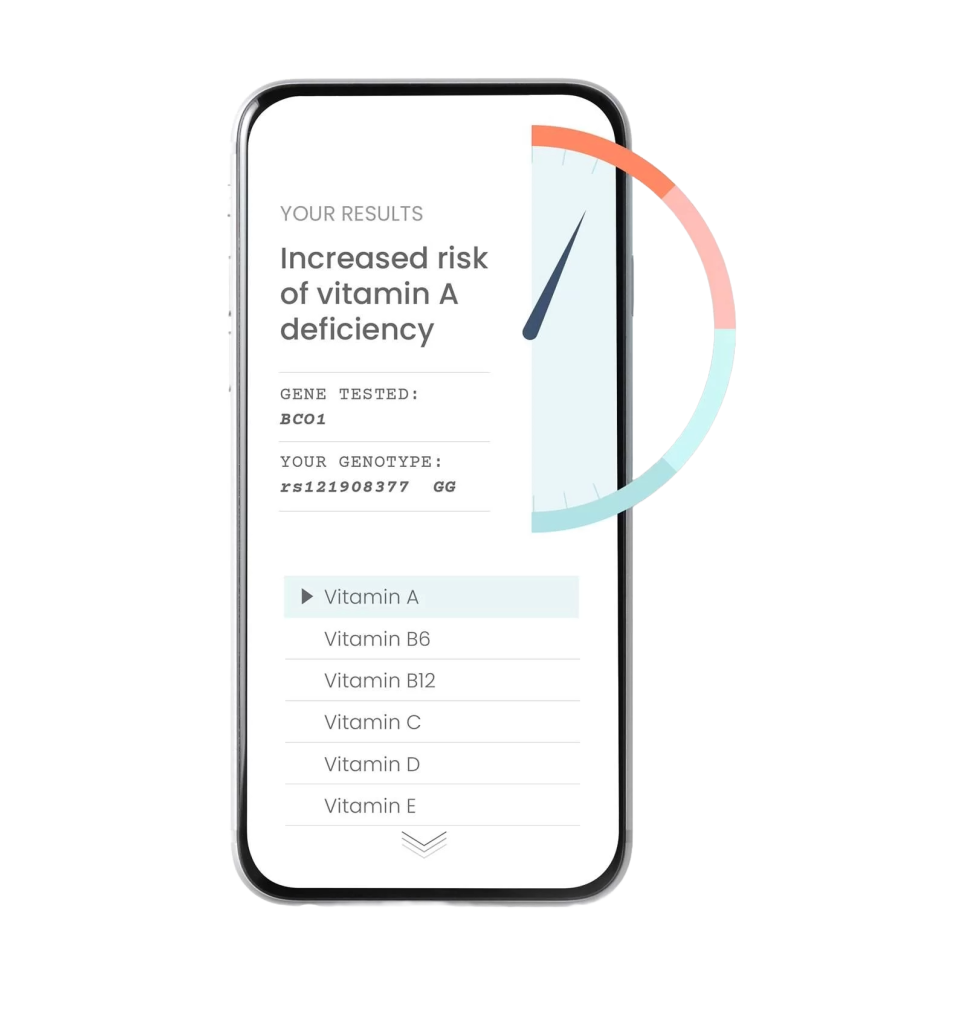
Need DNA evidence for court proceedings?
Frequently Asked Questions
How does the DNA Grandparent Test work?
Once you place your order for DNA Grandparent Test, we'll promptly send you a DNA test kit. The kit comes complete with easy-to-follow instructions to guide you through collecting a mouth swab sample from each person participating in the test. Simply rub the swabs gently inside the mouth for 15 seconds, then send the collected samples to our laboratory for analysis.
We'll start testing your DNA samples immediately after they arrive at the laboratory, and your DNA Grandparent Test results will be ready within just 1 to 2 business days. We'll notify you when your samples arrive at the lab, and again after your test is completed. You can download or view your results directly from your secure online account, available online 24/7.
Why is it important to choose an accredited laboratory?
Selecting an accredited DNA testing laboratory is essential for several reasons. Firstly, accreditation serves as a mark of legitimacy and trustworthiness. It assures you that the laboratory meets stringent standards and follows established protocols to ensure accurate and reliable testing.
Accreditation also guarantees the highest quality of testing. Accredited laboratories undergo comprehensive evaluations by reputable organizations to assess their proficiency and competence. By choosing an accredited laboratory, you can have confidence in the precision and integrity of your test results.
At Genetrack, we take pride in being one of the few DNA laboratories worldwide to have received all major internationally recognized and prestigious DNA laboratory accreditations. These include the Standards Council of Canada (SCC), American Association of Blood Banks (AABB), College of American Pathologists (CAP), Clinical Laboratory Improvement Amendments (CLIA), and ISO/IEC 17025, a testament to our commitment to upholding the highest standards in DNA testing.
How long does the testing take?
Once we receive your samples, testing begins immediately, and results are usually ready within 1 to 2 business days. You can access your results securely online through your secure online account.
How will I receive my DNA Grandparent Test results?
You can view your DNA Grandparent Test results discreetly from your secure online account once the test is completed. You also have the option to download and print unlimited copies of your final test report.
Why would I need a DNA Grandparent Test?
This test is used to determine if an individual is the biological grandmother or grandfather of a child when the alleged parent is not available for testing. This could be for personal reasons, such as establishing family relationships, or for legal reasons, such as inheritance disputes or immigration cases.
Is the home DNA test as accurate as the legal DNA test?
Yes, the home DNA test is just as accurate as the legal DNA test. Both tests are performed in our accredited laboratory and use the same advanced technology and rigorous testing procedures to analyze the DNA samples. The results from both tests are equally accurate and reliable.
The main difference between the two tests is not the accuracy of the results, but the method of sample collection and the documentation process. For a home DNA test, you collect the samples yourself at home, while for a legal DNA test, the sample collection must be witnessed by a neutral third party, such as a medical professional or a legal representative, to maintain a chain of custody. This chain of custody process is what makes the results of a legal DNA test admissible in court.
So, if you need the test results for legal purposes, such as child custody cases, child support disputes, inheritance claims, or immigration applications, you would need to opt for the legal DNA test. If you're simply seeking to confirm a biological relationship for personal knowledge, the home DNA test would be sufficient.
Can the kit be shipped to more than one address if the parties live in different cities?
Absolutely! If the participants live in different cities or even different countries, we offer the flexibility to ship the DNA test kit to multiple addresses. To request a split kit, simply provide the names and addresses where each kit should be mailed in the comments section of the order form and include a note saying "please split this kit". Please note that an additional fee of $10 will apply per additional address.
Each component in the kit is labelled with barcodes that are specific to your test order. This means that even if you choose to split the kit and send the respective components to each party for sample collection, the samples will still be tested together once they arrive at the laboratory. This ensures that all samples are correctly matched to your test order, providing accurate and reliable results.
Do I need to go to a lab for DNA Grandparent Testing?
No, our at-home DNA grandparent test kit allows you to collect DNA samples from the comfort of your own home. The kit includes all the necessary materials and instructions for sample collection. Once you’ve collected the samples, you simply send them back to our lab for testing.
Can a baby take the DNA Grandparent Test?
Yes, there is no age limit for DNA testing so the test can be performed on infants as well as adults. The DNA sample is collected using a simple and painless cheek swab.
